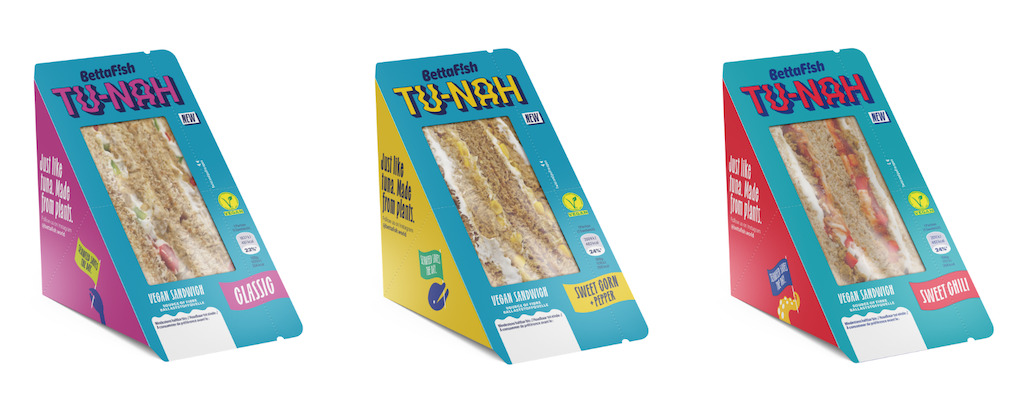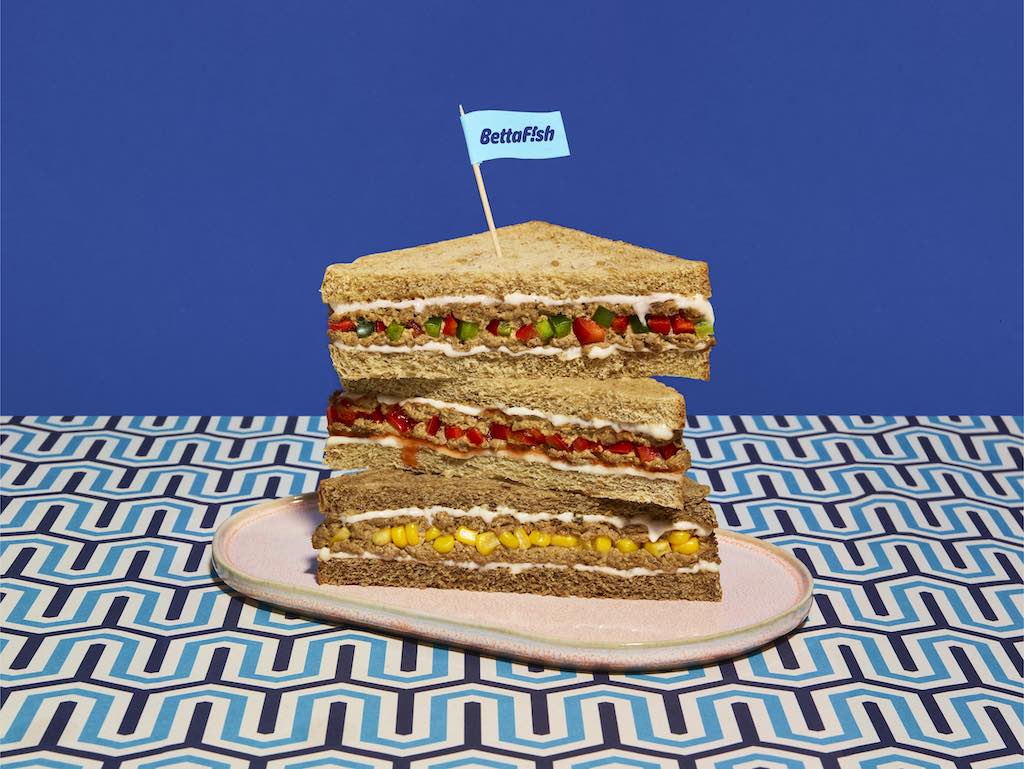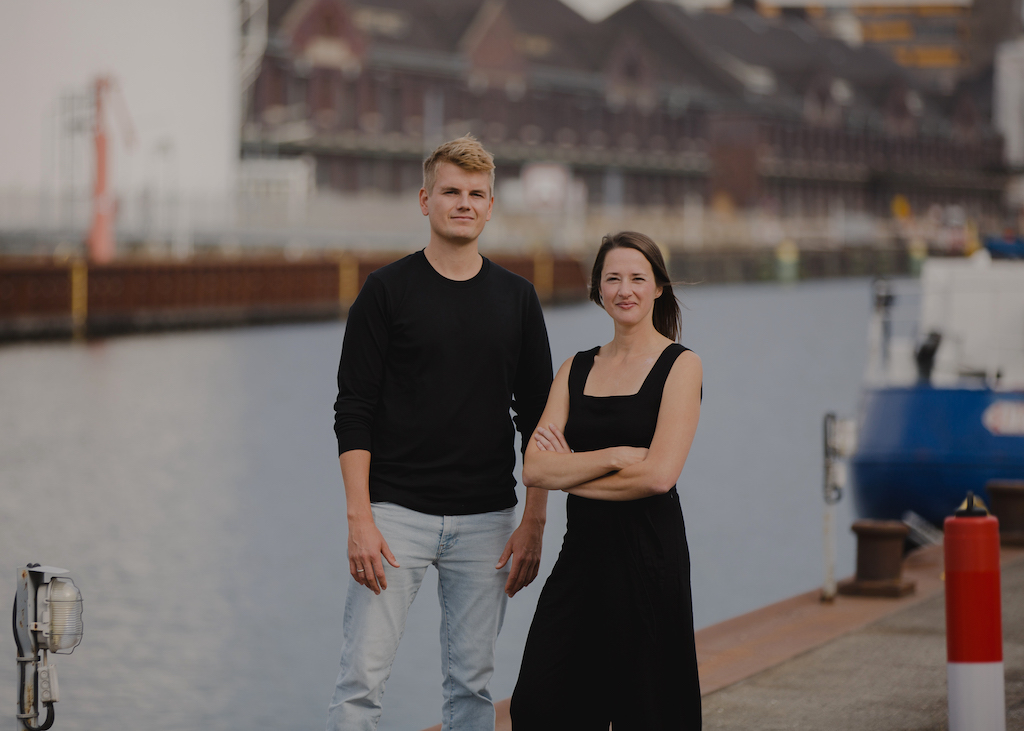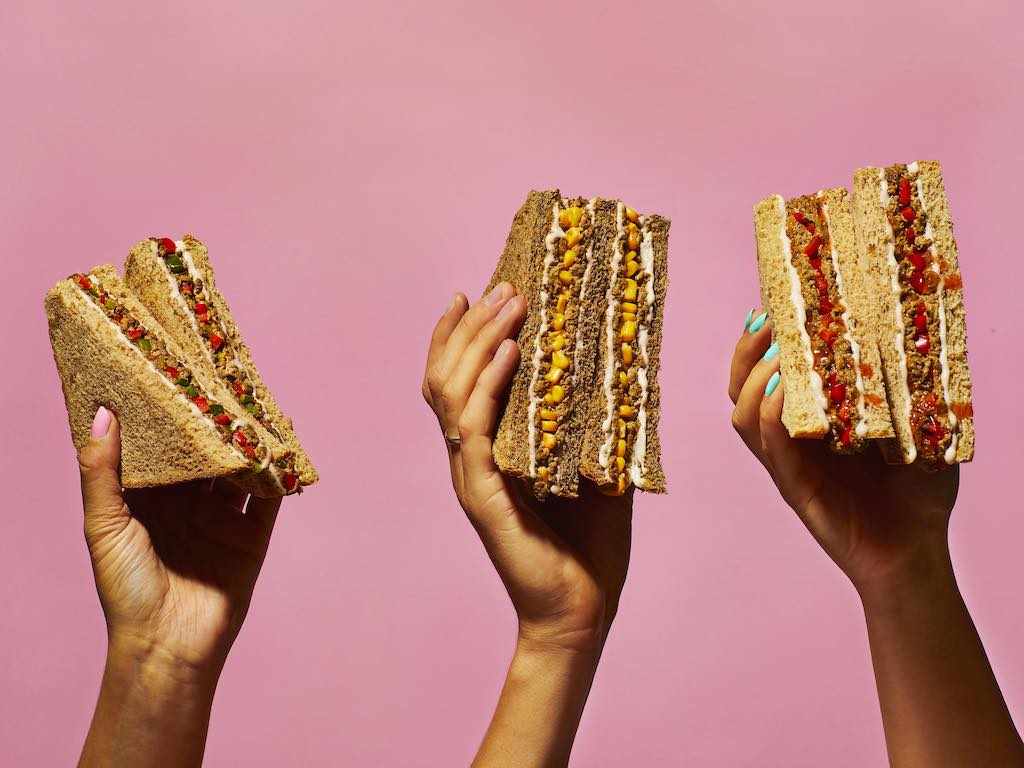Vegan Tuna Sandwiches Are Landing In 4,000 Aldi Stores Across Germany
4 Mins Read
This month, more than 4,000 Aldi supermarket stores are going to begin selling vegan tuna sandwiches. Made from newly-founded startup BettaF!ish’s plant-based tuna analogue, the roll-out will represent one of the largest initial launches of vegan seafood in the country.
BettaF!sh is launching its flagship product, dubbed TU-NAH, across more than 4,000 locations of Aldi Germany, one of the country’s top retailers. From this month, Aldi will begin stocking three flavours of 100% plant-based tuna sandwiches made with BettaF!sh’s vegan alternative, which is made from legumes and seaweed.

BettaF!sh vegan tuna
The Berlin-based startup’s alternative, unlike many alternative protein products on the market, contains no soybeans or wheat. Instead, it is made from a base of legumes, such as organic fava beans from northern France, and seaweed from Norway and Ireland.
BettaF!sh says that aside from ditching the environmental impact associated with commercial fishing—and especially tuna production with 43% of the species’ population under threat—its plant-based tuna is also healthier. It contains no methylcellulose, yeast extract or artificial flavourings, is high in protein, while still delivering the same fishy taste and texture that consumers love about real tuna.
Aldi’s new vegan tuna sandwiches will contain BettaF!sh’s TU-NAH, coming in three flavour varieties: Classic, Sweet Corn and Pepper, and Sweet Chilli. These items will initially be available in Aldi Nord and Aldi Süd next week, before a nationwide launch across all of Aldi’s 4,000 outlets in Germany.

According to the newly-founded startup, its debut launch at Aldi marks one of the largest roll-outs of a vegan seafood substitute product.
‘Seaweed deserves a place on every plate’
BettaF!sh says that taking on canned tuna is just the first step in its journey to disrupt the way we make and consume seafood—and it wants to replace conventional seafood with seaweed, which can be grown throughout Europe and become an alternative business for fishing communities in the region.
Instead of taking from the oceans, seaweed cultivation could help oceans restore its balance, and can be grown without fertilisers or pesticides, while providing a cost-efficient raw ingredient to create healthier and sustainable vegan seafood products.

“We are extremely proud to point out that our BettaF!sh products have a significant positive impact,” shared co-founder Jacob von Manteuffel. “By purchasing just one TU-NAH sandwich, the consumer makes an active contribution to reducing bycatch, CO2 emissions and overfishing”.
Von Manteuffel started BettaF!sh less than one year ago with co-founder Deniz Ficicioglu, who has described the startup’s flagship product as one that will “help us push the topic of saving our seas and their dwellers to the forefront” and proof that “seaweed deserves a place on every plate.”
While the young company has yet to share more details about what other vegan seafood products are in the pipeline, it says that consumers can expect more tuna analogues to be rolled out across foodservice channels in Germany before new items will “round out” its range.
Alternative seafood space heats up

The launch of BettaF!sh comes as the alternative seafood sector gains momentum, with the category netting $116 million within the first half of 2021. The figure, which includes funding rounds of companies developing plant-based, cell-based and fermentation seafood products, already exceeds the total recorded for last year.
Joining BettaF!sh as a new player in the industry in Europe is Monkeys By The Sea, a Dutch food tech that launched with a $500,000 pre-seed round to support its upcoming debut of microalgae-powered vegan tuna and breaded fish alternatives.
Some of the other vegan seafood brands that have made headlines in recent weeks include Sweden’s Hooked Foods, which bagged €3.8 million for its plant-based shredded salmon launch, and Sophie’s Kitchen, a pioneer of the sector, which is now being fuelled with $5.6 million to continue growing its clean label alt-seafood range.
All images courtesy of BettaF!sh.




